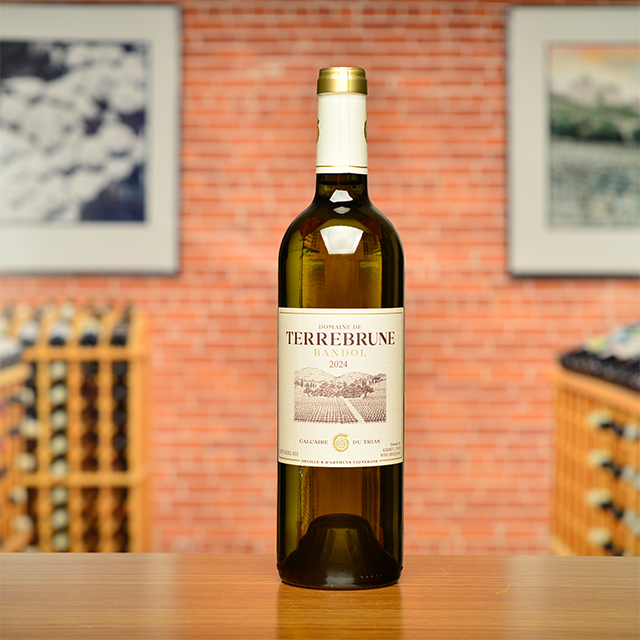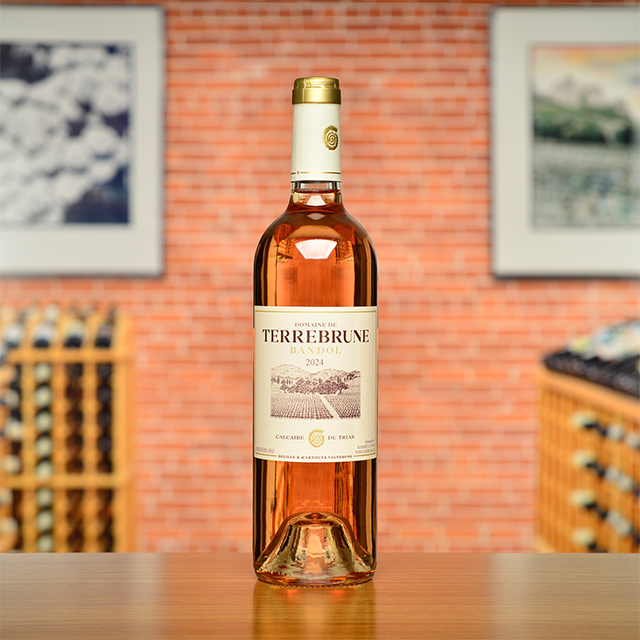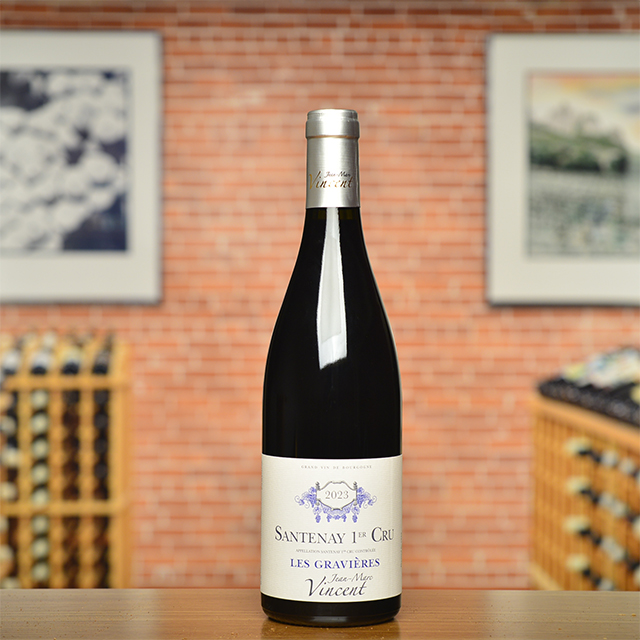Notify me
2020 Cassis Blanc
Clos Sainte Magdeleine
32 years later, the tiny Cassis appellation is glimmering like never before. Try the 2020 Cassis Blanc to see for yourself.
Back in 1969 before Bacchus waved his magic wand and made me into a wine importer, I was banging about Europe on a penny-pinching holiday. Needing a rest en route from Barcelona to Salzburg, I pulled off the highway to find a hotel. The nearest village was Cassis, proving that accidents are not always tragic. I did not know the beauty of the place had attracted painters such as Vlaminck, Matisse, and Dufy, or that there were literary connections with Marcel Pagnol and M.F.K. Fisher. I simply needed a bed.
And stayed a week. I ate in cheap backstreet restaurants: fish soup, fish stew grilled fish, fruits de mer, always with a bottle of the local sun-drenched white wine. All the vintners produce red and rosé, but those don’t matter. It is its unique dry white that puts Cassis on the wine map.
The 1986 will convert cynics who say the incomparable beauty of the site makes the wine taste good. The vintage plays a role; conditions were perfect. The aroma is ripe and grapes, and all the flavors are intact because the Clos Sainte Madeleine has agreed to forgo a filtration at the mise en bouteille. A blend of Ugni blanc, Claudette, Marsanne, and Sauvignon blanc, here is the wine to enhance seafood and shellfish. On a warm evening it serves as an appropriate apéritif. It goes particularly well with Roquefort and goat cheese. And you sailors, here is the wine for your boat’s ice chest. It tastes as good on the Pacific as it does on the Mediterranean.
[From the June 1988 Newsletter]
32 years later, the tiny Cassis appellation is glimmering like never before. Try the 2020 Cassis Blanc to see for yourself.
—Kermit Lynch
| Wine Type: | white |
| Vintage: | 2020 |
| Bottle Size: | 750mL |
| Blend: | 40% Marsanne, 30% Ugni blanc, 25% Clairette, 5% Bourboulenc |
| Appellation: | Cassis |
| Country: | France |
| Region: | Provence |
| Producer: | Clos Sainte Magdeleine |
| Winemaker: | Jonathan Sack |
| Vineyard: | Planted in 1972-2009 (40 years average), 9 ha |
| Soil: | Clay, Limestone |
| Aging: | Aged in stainless steel tanks and two 500-L demi-muids on fine lees until spring or early summer bottling |
| Farming: | Organic (certified) |
| Alcohol: | 13% |
More from this Producer or Region

2022 Côtes de Provence “Blanc de Blancs”
France | Provence
This gorgeous blend of Vermentino, Ugni Blanc, Sémillon, and Clairette is both fleshy and mineral-driven.

2024 Bandol Blanc
France | Provence
This mineral blend has an ethereal perfume, reminiscent of blossoming flowers with a hint of fennel.

2024 Cassis Blanc
France | Provence
A blend of Ugni blanc, Claudette, Marsanne, and Sauvignon blanc, here is the wine to enhance seafood and shellfish.

2023 Cassis Blanc “Bel-Arme”
France | Provence
With a touch of creaminess following the crisp stone fruit, it’s a Mediterranean white in a cashmere sweater.

2021 Bandol Rouge “La Migoua”
France | Provence
At the domaine's highest-elevation site, Mourvèdre's might is gently enveloped by Grenache and Cinsault to yield a Bandol of great finesse.

2024 Méditerranée Blanc
France | Provence
Bursting with exuberant floral aromas and fragrant summer fruit, it boasts low alcohol and a zippy acidity.

2022 Bandol Rouge “La Tourtine”
France | Provence
There are few pleasures like aged Bandol rouge from Tempier.

2022 Bouches-du-Rhône Blanc “Baume Noire”
France | Provence
It is a seafood lover’s dream wine.

2024 Bandol Rosé
France | Provence
A terroir-driven rosé redolent of a Provençal summer with notes of thyme and white peach, and a mouthwateringly salty finish.

2023 Bouches-du-Rhône Blanc “Baume Noire”
France | Provence
It is a seafood lover’s dream wine.
About The Producer
Clos Sainte Magdeleine
About The Region
Provence

There is perhaps no region more closely aligned with the history of Kermit Lynch Wine Merchant than Provence. While Kermit began his career as a Burgundy specialist, he soon fell in love with Provence and its wines, notably the legendary Bandols of Domaine Tempier, which he began importing in 1977. He later began living in the area part-time, returning frequently between tasting trips, and today he spends most of his time at his home just outside of Bandol.
Provence is thought to be France’s most ancient wine region, established when Greek settlers landed in the modern-day port city of Marseille in the 6th century BC. The conditions here are ideal for cultivation of the grapevine, with a hot, dry climate and a prevalence of poor, rocky soils, primarily limestone-based, suitable for vines and not much else. The ever-present southern sunshine as well as the mistral, a cold, drying wind from the northwest that helps keep the vines free of disease, are crucial elements of Provençal terroir. Wild herbs from the pervasive scrubland, called garrigue, and cooling saline breezes from the Mediterranean also contribute to the quality and character of wines in all three colors.
Provence is well known for its rosés, but red wines have always held importance here. The very best, such as those from Bandol, possess great depth and a capacity for long-term aging. The white wines, notably those of Cassis, offer weight balanced by a maritime freshness, making them ideal pairings for the local seafood. Mourvèdre reigns king for red grapes, supported mainly by Grenache and Cinsault, while Clairette, Marsanne, Rolle, and Ugni Blanc are the region’s principal white grapes.
More from Provence or France
2021 Côtes de Provence Syrah “Les Planches de la Garedivole”
Clos Saint-Joseph France | Provence
2021 Bandol Rouge “Lulu et Lucien” MAGNUM
Domaine Tempier France | Provence
2023 Bandol Rouge
“La Migoua”
Domaine Tempier France | Provence
2024 Cassis Blanc
Clos Sainte Magdeleine France | Provence
2022 Alpes-Maritimes Grassenc “Les Planches de Lunel”
Clos Saint-Joseph France | Provence
2023 Alpilles Blanc “Jaspe”
Domaine Hauvette France | Provence
2023 Cassis Blanc “Bel-Arme”
Clos Sainte Magdeleine France | Provence
2022 Alpilles Rouge “Grenache”
Domaine Hauvette France | Provence
2024 Bandol Blanc
Domaine de Terrebrune France | Provence
2022 Bandol Rouge “La Tourtine”
Domaine Tempier France | Provence
2022 Bouches-du-Rhône Blanc “Baume Noire”
Clos Sainte Magdeleine France | Provence
2024 Alpilles Rouge “Cinsault”
Domaine Hauvette France | Provence
2021 Côtes de Provence Syrah “Les Planches de la Garedivole”
Clos Saint-Joseph France | Provence
2021 Bandol Rouge “Lulu et Lucien” MAGNUM
Domaine Tempier France | Provence
2023 Bandol Rouge
“La Migoua”
Domaine Tempier France | Provence
2024 Cassis Blanc
Clos Sainte Magdeleine France | Provence
2022 Alpes-Maritimes Grassenc “Les Planches de Lunel”
Clos Saint-Joseph France | Provence
2023 Alpilles Blanc “Jaspe”
Domaine Hauvette France | Provence
2023 Cassis Blanc “Bel-Arme”
Clos Sainte Magdeleine France | Provence
2022 Alpilles Rouge “Grenache”
Domaine Hauvette France | Provence
2024 Bandol Blanc
Domaine de Terrebrune France | Provence
2022 Bandol Rouge “La Tourtine”
Domaine Tempier France | Provence
2022 Bouches-du-Rhône Blanc “Baume Noire”
Clos Sainte Magdeleine France | Provence
2024 Alpilles Rouge “Cinsault”
Domaine Hauvette France | Provence
Where the newsletter started

Where the newsletter started
Every three or four months I would send my clients a cheaply made list of my inventory, but it began to dawn on me that business did not pick up afterwards. It occurred to me that my clientele might not know what Château Grillet is, either. One month in 1974 I had an especially esoteric collection of wines arriving, so I decided to put a short explanation about each wine into my price list, to try and let my clients know what to expect when they uncorked a bottle. The day after I mailed that brochure, people showed up at the shop, and that is how these little propaganda pieces for fine wine were born.—Kermit Lynch

















